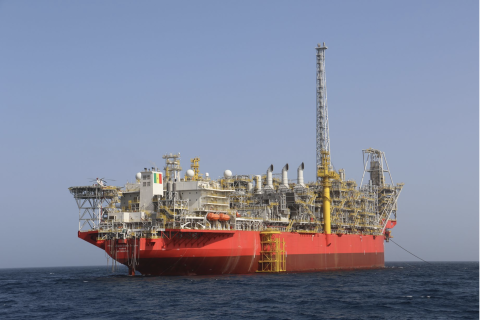U.S. energy firms this week cut the number of oil rigs operating for the first time in three weeks after U.S. crude production hit an all-time high, boosting exports to a record high and stockpiles to their highest in over a year.
Drillers cut four oil rigs in the week to Feb. 22, bringing the total count down to 853, Baker Hughes, a GE company, said in its weekly report.
For the month, the rig count fell by nine. That was the first time drillers removed rigs for three months in a row since October 2017. The rig count declined by two in December and 23 in January.
The U.S. rig count, an early indicator of future output, is still higher than a year ago when 799 rigs were active after energy companies boosted spending in 2018 to capture higher prices that year.
U.S. oil output from seven major shale formations is expected to rise 84,000 barrels per day (bbl/d) in March to a record of about 8.4 million bbl/d, the U.S. Energy Information Administration (EIA) said in a monthly report on Feb. 19.
A shale revolution has helped boost the United States to the position of world’s biggest crude oil producer, ahead of Saudi Arabia and Russia.
Overall crude production has climbed to a weekly record of 12 million bbl/d, the EIA said in its latest report, mainly due to increases in the Permian, the biggest U.S. oil patch in the United States, and the Bakken in North Dakota. Crude stockpiles have built for a fifth straight week to their highest since October 2017 and exports hit an all-time high.
In 2019, however, several drillers have said they plan to remove rigs due in part to forecasts for lower crude prices than last year.
More than half the total U.S. oil rigs are in the Permian where active units were unchanged after falling last week to 473, the lowest since June.
U.S. crude futures were trading around $57.40 per barrel on Feb. 22, after hitting their highest since mid-November. Prices were heading for a more than 3% weekly rise.
Looking ahead, crude futures were trading around $59 per barrel for the balance of 2019 and around $58 per barrel for the calendar 2020.
U.S. financial services firm Cowen & Co. said this week that early indications from the exploration and production (E&P) companies it tracks point to a 6% decline in capex for drilling and completions in 2019.
In total, Cowen said those E&P companies spent about $93.4 billion in 2018.
There were 1,047 oil and natural gas rigs active in the United States this week, according to Baker Hughes. Most rigs produce both oil and gas.
Recommended Reading
CNOOC’s Suizhong 36-1/Luda 5-2 Starts Production Offshore China
2024-02-05 - CNOOC plans 118 development wells in the shallow water project in the Bohai Sea — the largest secondary development and adjustment project offshore China.
Equinor Receives Significant Discovery License from C-NLOPB
2024-02-02 - C-NLOPB estimates recoverable reserves from Equinor’s Cambriol discovery at 340 MMbbl.
Sangomar FPSO Arrives Offshore Senegal
2024-02-13 - Woodside’s Sangomar Field on track to start production in mid-2024.
CNOOC Finds Light Crude at Kaiping South Field
2024-03-07 - The deepwater Kaiping South Field in the South China Sea holds at least 100 MMtons of oil equivalent.
US Raises Crude Production Growth Forecast for 2024
2024-03-12 - U.S. crude oil production will rise by 260,000 bbl/d to 13.19 MMbbl/d this year, the EIA said in its Short-Term Energy Outlook.




